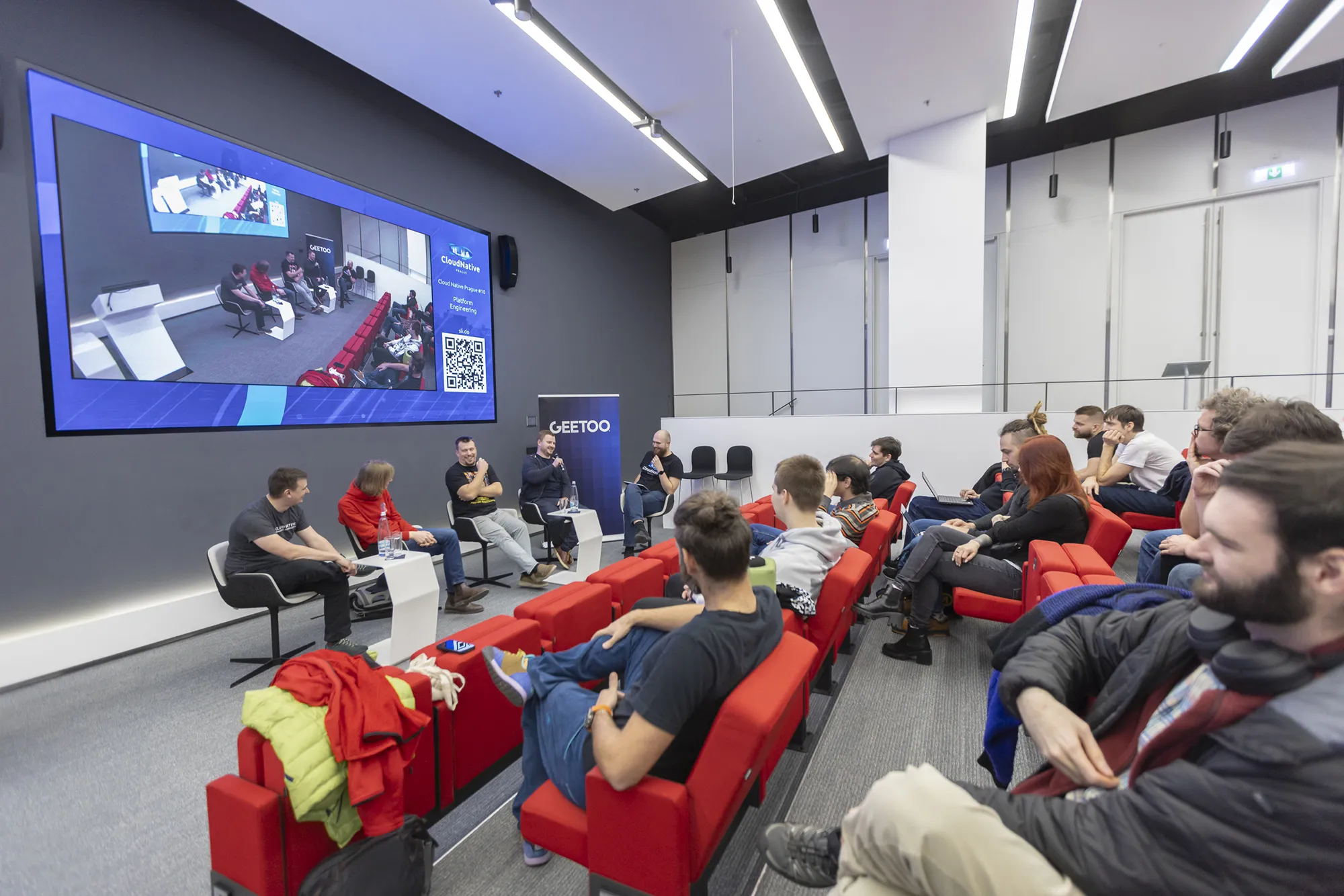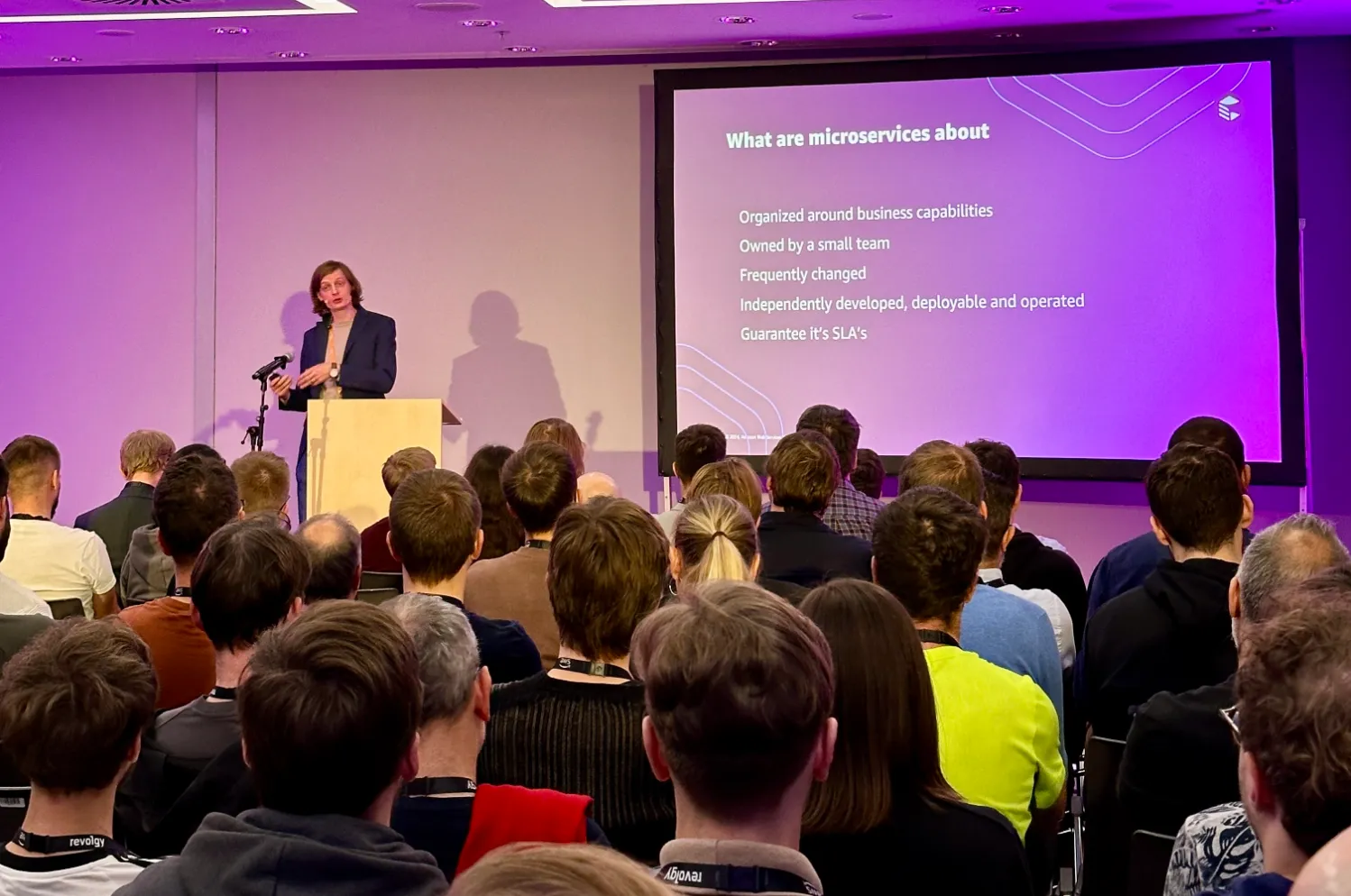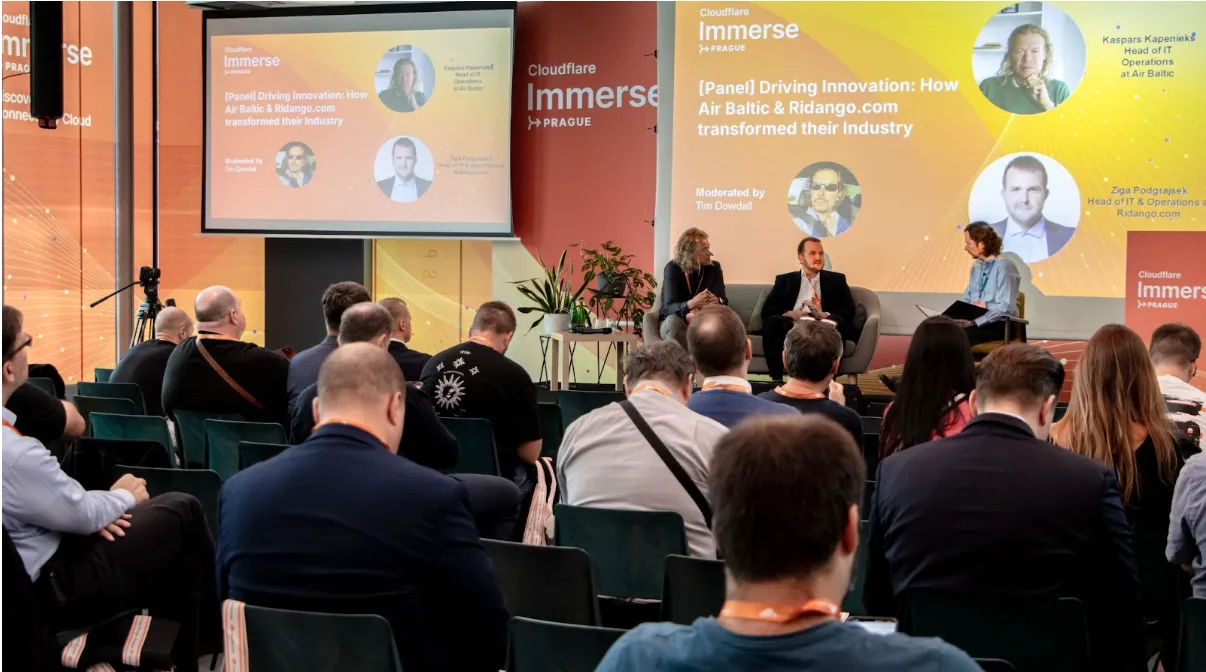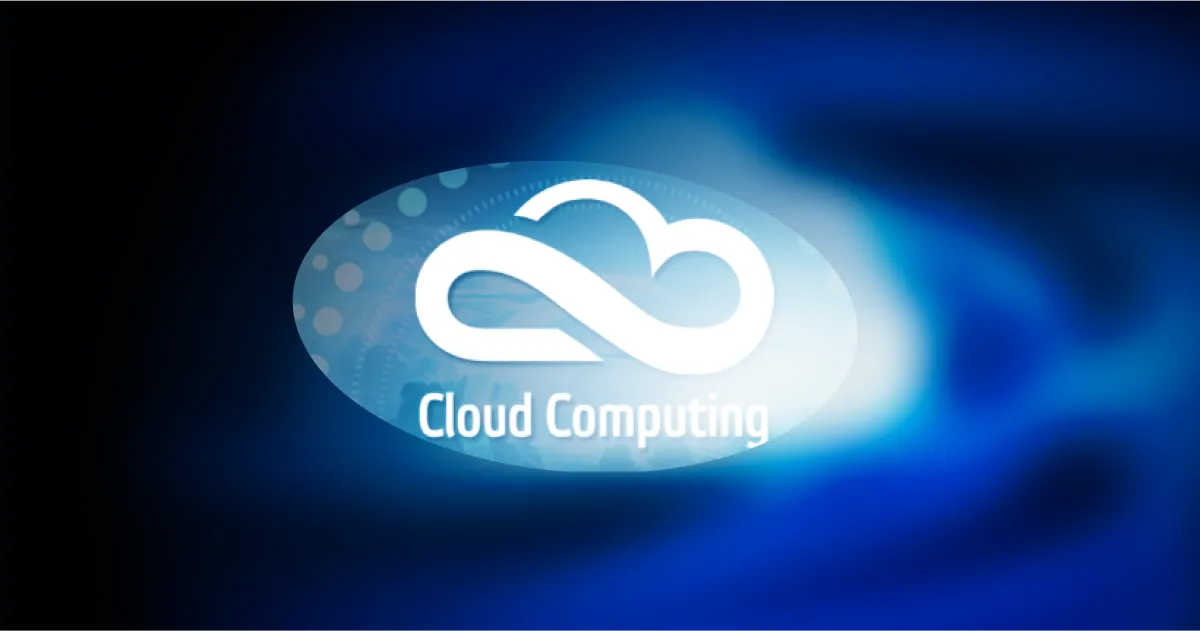CNCF meetup with CodeNOW
Cloud Native Computing Foundation meetup hosted at CodeNOW office.

Overview
CodeNOW, a silver member of the Cloud Native Computing Foundation, hosted two significant CNCF meetup events in Prague during 2024. The company participated in a panel discussion about platform engineering in February and organized an April meetup focused on microservices and bridging business-IT alignment.
Key Topics Covered
Platform Engineering Panel (February 28, 2024)
The discussion featured four industry experts:
- Filip, Senior Software Engineer at Microsoft
- Adam Skotnický, CEO of Titan Cloud
- Petr Svoboda, CEO of CodeNOW
- Zdenek Váňa, DevOps and Cloud Team Lead
Main themes included:
- Abstracting technical complexities for developers
- Balancing developer needs with operational demands
- Security integration throughout development lifecycles
- GitOps implementation and automation
- AI and machine learning's role in platform optimization
Microservices and Domain-Driven Design (April 2024)
Petr Svoboda presented how three methodologies unite business and IT:
Microservices Architecture Benefits:
- "Enhances scalability by allowing each service to scale independently"
- Increases resilience and system flexibility
- Enables continuous delivery and faster updates
Domain-Driven Design Integration:
Using bounded contexts and ubiquitous language to align microservices with business capabilities, improving organizational efficiency.
Event-Driven Architecture (EDA):
- Decouples services through asynchronous communication
- Handles high-volume data processing
- Improves real-time responsiveness
Implementation Recommendations
Svoboda offered practical guidance:
- Start small with modular monoliths before transitioning
- Align microservices directly with business functions
- Ensure each microservice manages its own data independently
Technical Stack
CodeNOW supports multiple technologies including TypeScript, JavaScript, GitLab, Java, Grafana, Kubernetes, and Docker.
Resources: Video recordings available on the CNCF Community YouTube Channel
Written by CodeNOW


